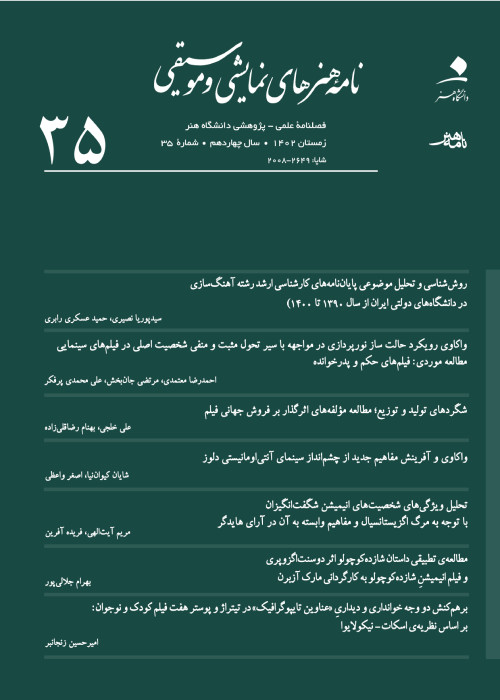Musica Poetica; Analysis of a Concept on Musical Composition
Author(s):
Article Type:
Research/Original Article (دارای رتبه معتبر)
Abstract:
“Musica Poetica” is a concept inspired by the Aristotelian system of thought, which was proposed in the field of Music by Nicholas Listenius during the Renaissance. As its title implies, “Musica Poetica” refers to the composition of music and separating its scope from “Musica Theorica” and “Musica Practica”. However, the process of developments in the field of musical composition shows that after this concept was proposed, music in the field of composition was attracted to “trivium” arts such as rhetoric. This evolution is such a turning point in the history of music that even today, there is less talk about the origin, dimensions and necessity of the concept of “Musica Poetica” itself, and most of the sources have only made a passing reference to this concept under the topic of correlation between Music and Rhetoric. The present historical-analytical research aims to answer the seminal question of what issue or issues Listenius alluded to with proposing “Musica Poetica” by exploring the historical, intellectual and epistemological background in which this concept was born. In this regard, while referring to the text of the treatises left by Listenius, an attempt was made to analyze his opinions based on Aristotelian epistemological concepts and finally based on historical evidence and the process of subsequent developments of Music. The results showed that Listhenius first by insisting on keeping constant the fluid and oral corpus of the music of his time, through musical notation, provided the most important epistemological requirement for music to enter the field of Aristotelian “Poiesis”, and then by proposing the issue of conveying the message to the audience and future generations, he caused the correlation between music and “trivium” arts. In fact, at that historical moment, “Musica Poetica” considers the text of music as the text of oration and poem containing a message for the audience, and elevates composition to a category beyond counterpoint setting and improvisation based on pre-known melodies and patterns. From this point of view, it seems that understanding and comprehending the works of historical European music requires the analysis of various dimensions and the perceiving of the origin of the concept of “Musica Poetica”.
Keywords:
Language:
Persian
Published:
Journal of dramatic Arts and Music, Volume:13 Issue: 29, 2023
Pages:
111 to 128
magiran.com/p2559206
دانلود و مطالعه متن این مقاله با یکی از روشهای زیر امکان پذیر است:
اشتراک شخصی
با عضویت و پرداخت آنلاین حق اشتراک یکساله به مبلغ 1,390,000ريال میتوانید 70 عنوان مطلب دانلود کنید!
اشتراک سازمانی
به کتابخانه دانشگاه یا محل کار خود پیشنهاد کنید تا اشتراک سازمانی این پایگاه را برای دسترسی نامحدود همه کاربران به متن مطالب تهیه نمایند!
توجه!
- حق عضویت دریافتی صرف حمایت از نشریات عضو و نگهداری، تکمیل و توسعه مگیران میشود.
- پرداخت حق اشتراک و دانلود مقالات اجازه بازنشر آن در سایر رسانههای چاپی و دیجیتال را به کاربر نمیدهد.
In order to view content subscription is required
Personal subscription
Subscribe magiran.com for 70 € euros via PayPal and download 70 articles during a year.
Organization subscription
Please contact us to subscribe your university or library for unlimited access!


